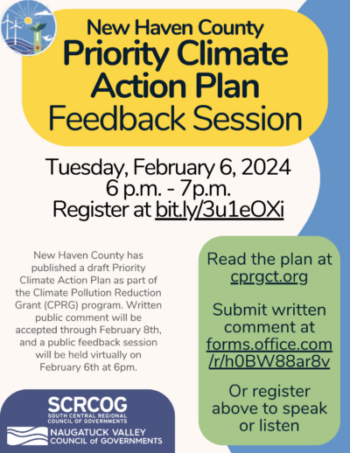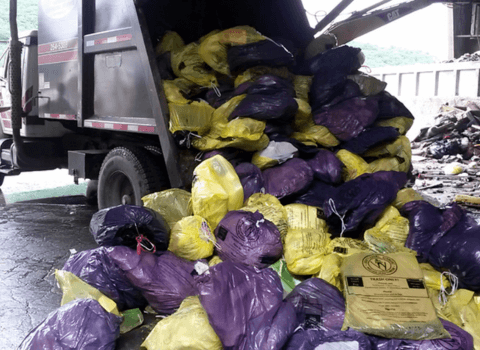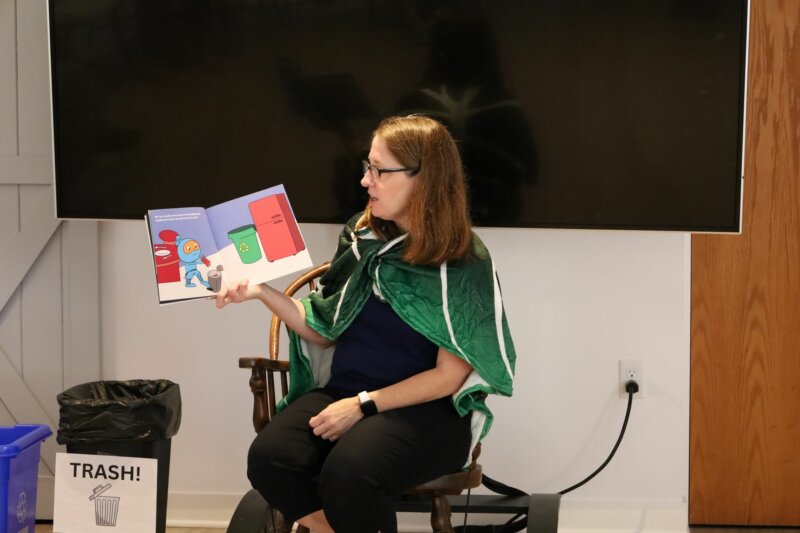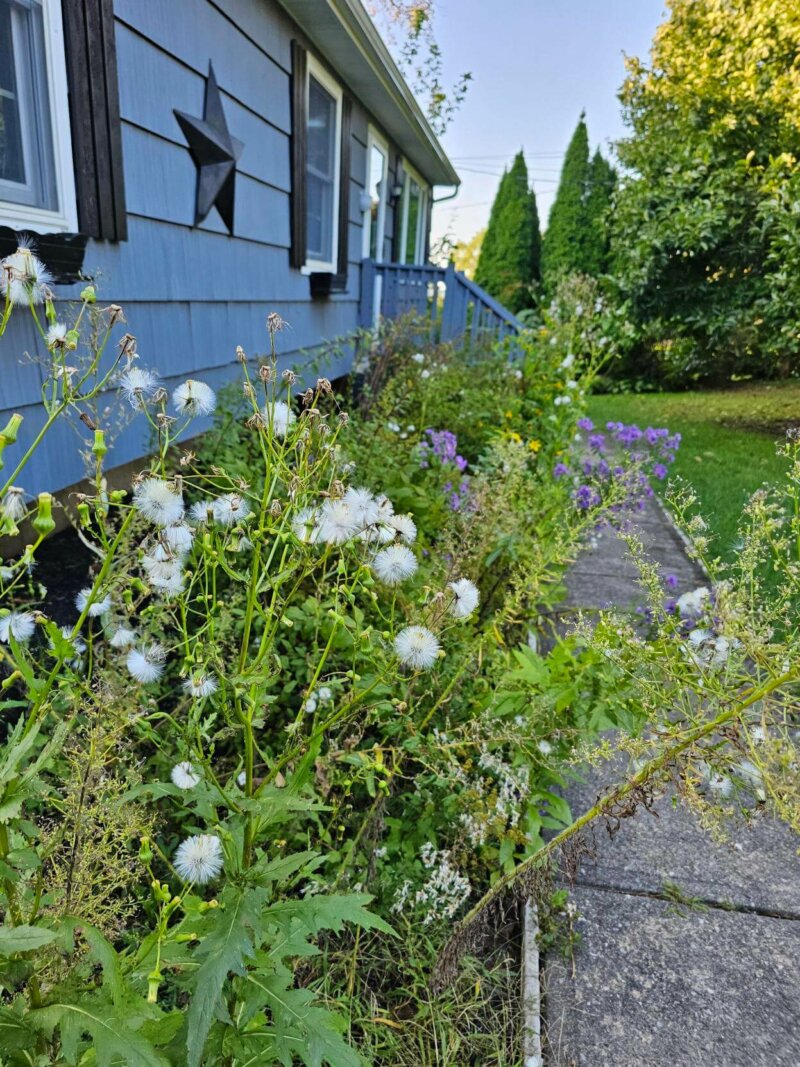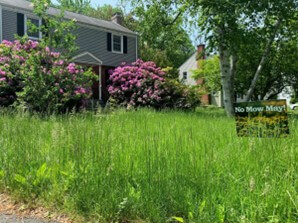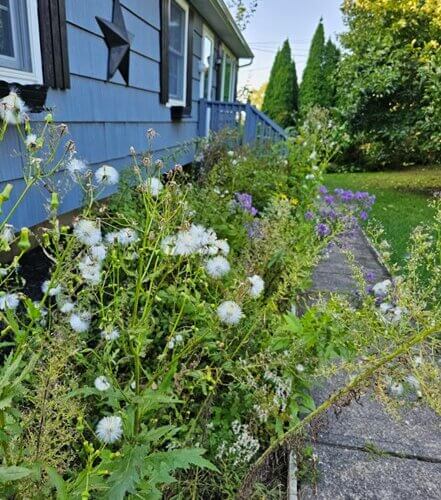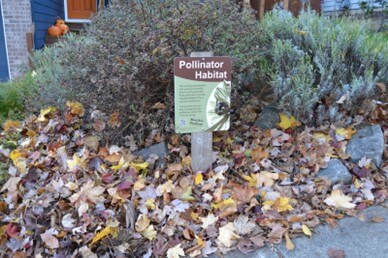Join SCRCOG and NVCOG for a public feedback session on the draft Priority Climate Action Plan (PCAP).
Waste Reduction and Savings for Municipalities Hosted by NVCOG and SCRCOG
The Naugatuck Valley Council of Governments (NVCOG) and the South Central Regional Council of Governments (SCRCOG) are hosting two forums that will inform municipal staff and elected officials on the implementation and successes of Organics Diversion & Unit Based Pricing (UBP).
The two-part forum will include one event for municipalities with transfer stations, and another event focused on implementing organics diversion and UBP with curbside pickup programs.
The Forums will include an informational presentation, along with a panel of waste reduction personnel that will share their experiences on how they have operated and implemented Organics Diversion and UBP in their communities.
The transfer station event hosted by NVCOG is scheduled for Wednesday, January 10th at 10am via Zoom. You can register for this webinar at https://tinyurl.com/TransferStationForum.
The curbside collection event hosted by SCRCOG is scheduled for Wednesday, January 17th at 10am. You may register for this webinar at https://tinyurl.com/CurbsideCollectionForum.
These forums follow the Connecticut Department of Energy and Environmental Protection’s (CT DEEP) efforts to address the state’s shrinking waste capacity by reducing waste. Organics Diversion and education on UBP are being piloted in 15 Connecticut towns through grant funds from the Sustainable Materials Management (SMM) Grant program provided by DEEP.
It is essential that municipalities find a sustainable solution for waste disposal, because according to CT DEEP disposal costs are rising as over 800,000 tons are currently being shipped to out-of-state landfills and landfill capacity in New England is expected to drop to zero as early as 2041 Governor Lamont Announces 2023 Legislative Proposal: Addressing the Future of Materials and Waste Management (ct.gov). We look forward to having a valuable discussion on how to practice sustainable waste management in your community! Feel free to reply to this email with any questions.

